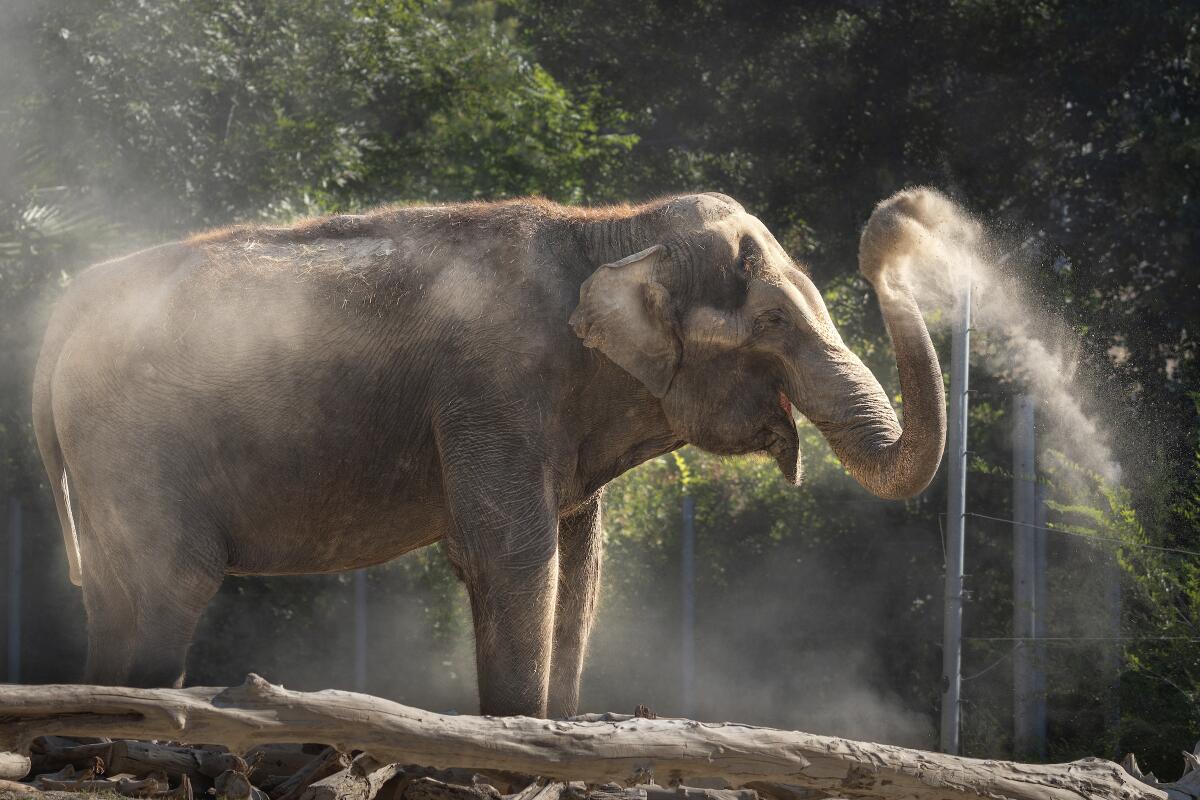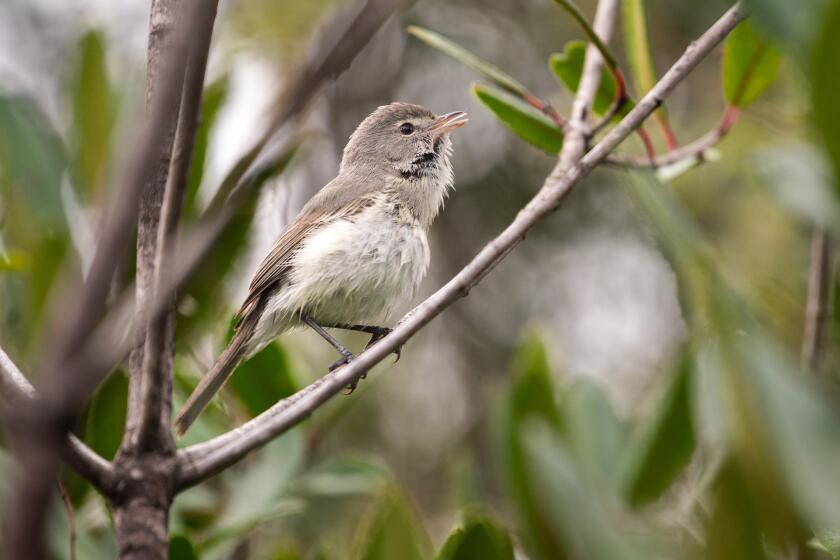After two L.A. Zoo elephants die in the span of one year, the City Council wants answers

- Share via
After outcry over the recent deaths of two L.A. Zoo elephants, the Los Angeles City Council wants to know why they were euthanized.
The council unanimously voted Wednesday to ask the zoo for a study that would examine the factors that led to the deaths of the two Asian elephants — Jewel and Shaunzi — and detail whether improvements need to be made in how the zoo cares for its remaining elephants.
The motion was introduced by Councilmembers Bob Blumenfield and Eunisses Hernandez after the zoo’s decision to euthanize 53-year-old Shaunzi in January. Jewel was euthanized in January 2023 at the age of 61.
“It’s not a whodunit. It’s not like they’re doing an autopsy to find the killer. We know they were euthanized because they were having serious medical issues,” Blumenfield said. “Part of the report is to find out: What were those issues? Is this something that was directly related to captivity?”
Industrial activity has added up to 15 decibels of noise to the Santa Barbara Channel, new research has found. Hear the difference.
Max Pulsinelli, a spokesperson for the L.A. Zoo, said in an email the zoo was “glad to provide this information to the Council as requested.”
Zoo officials have said that elephants at the zoo receive the highest level of care and that the decision to euthanize each elephant was made only after they had exhausted every other option. The decision to euthanize Jewel was made because her “quality of life was continuing to decline,” while Shaunzi was euthanized after considering factors including “her age [and] past medical history [and] her inability to right herself with supportive efforts to raise her,” the zoo has said.
The deaths have sparked outrage among animal rights groups, who say captivity dramatically increases the chances of elephants having a host of medical issues that can lead to a premature death.
“An elephant is the largest land mammal on Earth,” said Courtney Scott, an elephant consultant for In Defense of Animals. “They can’t even begin to thrive or even be remotely healthy in a few acres.”
Scott said that in recent years dozens of zoos have closed their elephant exhibits, including the Santa Barbara Zoo.
The deaths left the L.A. Zoo with just two remaining Asian elephants: Tina, who’s been at the facility since 2010, and Billy, who has been there since 1989.
Once teetering on extinction, the least Bell’s vireo is making a comeback in areas along the Los Angeles River, including a bustling park in northeast L.A.
Courtney Fern, director of governmental relations with Nonhuman Rights Project, an animal advocacy group, said she wanted to see the zoo move Billy and Tina to an animal sanctuary, which she called “the only form of captivity that can come close to meeting their needs.” In 2022, a council panel that focuses on animal welfare recommended Billy be moved to a sanctuary, given “abnormal” behavior. Activists have pointed to repetitive head bobbing and swaying.
Asian elephants have a lifespan of 60 to 70 years in the wild, according to the International Fund for Animal Welfare. They are considered endangered, with fewer than 50,000 remaining.
More to Read
Sign up for Essential California
The most important California stories and recommendations in your inbox every morning.
You may occasionally receive promotional content from the Los Angeles Times.













